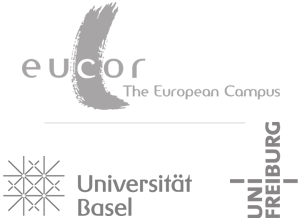Produktivität und Generalisierung in Spracherwerb, Sprachwandel und Sprachkontakt (Doktorandenseminar)
| Date | Friday, 25th October 2013 |
| Location |
veranstalter: Heike Behrens
ansprechpartner: Heike Behrens
email: über das ISIS-Portal oder bei heike.behrens@unibas.ch
web: http://www.isis.unibas.ch/index.php?content=detail&id=155437&modrelptr=34689
institution: HPSL
language: Englisch
location institution: Basel
date_raw: 25./26.10.2013
date_sort: 25.10.2013, 00:00:00
- Course description and aims (Version 2; October 16, 2013)
This course
starts from a constructivist perspective with the aim of discussing the
– often very similar but not identical – notions that underlie learning from
input as well as the processes by which children generalize over their
linguistic experience. The problem to be explained is that language is highly structured, but the
underlying structural principles may not be obvious.
The focus of the course readings is on the concept of
development and on the assumptions about the nature of the linguistic
representations to be acquired. These two notions form the basis for valid
acquisition research: In order to derive
testable hypotheses, one needs to be specific regarding the beginning state and
end state of acquisition (nature of the structure to be acquired), as well as
the developmental mechanisms that account for language development.
In the following, I have
provided an outline of the course program (2 days).
The readings will be available on ISIS. Please enrol here:
http://www.isis.unibas.ch/index.php?content=detail&id=155437&modrelptr=34689
For each session, the obligatory text is marked in
green. In addition, you are expected to act as an expert on one of the other
texts (= read it, evaluate it, be able to contribute the main aspects in terms
of theory and/or empirical validation). Please indicate your choice of text at your earliest
convenience by sending an email to heike.behrens@unibas.ch.
There should also be room for discussing your own
projects, to be discussed in the first
Session. The course will take place in two blocks: One
in September, with a focus on learning mechanisms and processes of
generalization, one in late October with a focus on more applied studies and
concrete morphosyntactic phenomena. It is assumed that many of these processes
hold for contact and change phenomena as well.
Session Overview (joint readings marked green)
Friday, October 25, THEORY
9:00 – 10:30h
1) Notions
of development (Hohenberger
& Lindner 2009)
a) Continuity
assumption, e.g., Maturation
i. Eissenbeiss 2009
b) Neuroconstructivism
i. Karmiloff-Smith 1998
c) Dynamic
systems theory
i. van Dijk & van Geert 2011
11:00 – 12:30h
2) Learning Mechanisms
a) Implicit
learning
i. Weinert 2009
b) Schematization
– abstraction
i. Behrens 2009
c) Statisticical
learning
i. Gomez & Gerken 2000
12:30- 14:00 lunchbreak
14:00 – 15:30h
3) Generalization of what: how to conceive of
linguistic structure?
a) Analogical
Reasoning: Relational analogies
i. Gentner & Smith 2012
b) Emergentism
i. Hockema & Smith 2009
ii. MacWhinney 2005
iii. O’Grady 2010 and 2008
16:00 – 17:30h
4) How
it all fits in: A processing theory of language
acquisition and change
i. Ellis 2002
ii. Beckner et al 2009
iii. Bybee & Beckner 2013
Saturday,
October 26, APPLICATION
What is the learning
problem and how to find the right cues?
9:00 – 10:30h
5) Learned attention
b) Learned
attention and other processing factors
i. Ellis 2006
c) Modelling
Study:
i. Freudenthal, Pine & Gobet 2009
11:00 – 12:30h
6) Nature of syntactic representation:
a) How to find structure in time
i. Elman 2003
b) Hierarchical structure?
i. Frank, Bod & Christiansen 2012
12:30 – 13:30h
General Discussion
